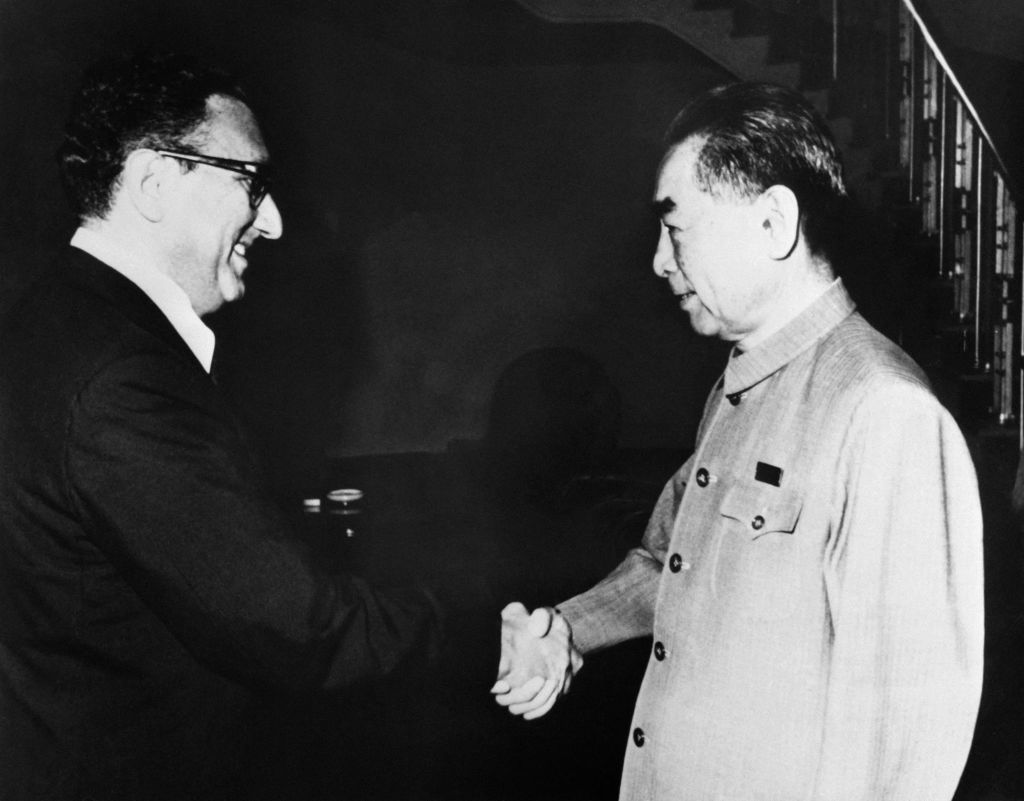- Saturday, July 27, 2024
In July 1971, Kissinger made a secret trip to Beijing with the help of Pakistan, one of the US’s most trusted allies, after the ‘ping pong diplomacy’ eased the tension between the US and China.

By: Shubham Ghosh
WHILE its current ties with the US are far from smooth, yet China on Wednesday (29) mourned the death of Henry Kissinger, one of the most prominent Cold War-era diplomats, as he was among Beijing’s few trusted friends and had played a major role in reviving the relations between the two powers half a century ago.
The Chinese foreign ministry hailed the former US national security adviser and secretary of state as “a pioneer and architect of China-US relations”.
But how did Kissinger come to play about the role that he had played in Washington’s policy towards a communist regime and what was the significance of the historic ‘ping pong diplomacy’?
Read: Henry Kissinger, who strongly disliked India, batted for robust US ties with Modi’s India
In the years after Mao Zedong’s communist revolution in China in 1949 when it was created, its relations with the US were clouded by Cold War propaganda, embargoes on trade and frozen diplomacy. The two powers also had a bitter tussle during the Korean War in the early 1950s and not American delegation had visited China in more than two decades.
Read: Kissinger, who influenced Cold War era, dies at 100
In 1971, a change was evolving in the realm of international relations. China’s friendship with the erstwhile Soviet Union, an enemy of the US, soured and the two neighbours had a series of ugly border clashes. Both Washington and Beijing found in each other common ground to meet over their enmity with the Russians.
Richard Nixon, the then US president, had prioritised opening China. It was just four years prior that he had opined that China could not be left forever outside the family of nations.
The two countries soon opened secret communications between them but the real gamechanger in their reconciliation was a public meeting between a pair of ping pong or table tennis players.
It was during the World Table Tennis Championships in Nagoya in Japan in 1971 that American player Glenn Cowan got into a bus carrying the Chinese national team wearing red shirts. While the Chinese players saw Cowan, then 19, with suspicion, Zhuang Zedong, the greatest player on the Chinese side, reached out to the American player with a handshake and conversation with the help of an interpreter. He even gifted the latter a silk-screen picture of China’s Huangshan mountains.
Cowan returned the favour the next day by presenting Zhuang a t-shirt displaying a peace symbol and the Beatles’ lyric “Let It Be”. These gestures soon became the talk of the tournament and Mao Zedong found a diplomatic opportunity in this good will.
He hailed Zhuang as a “good diplomat” besides being a “good table tennis player” and a few days later, Mao left the world stunned by inviting the American team to China, with the host nation ready to bear their expenses. The American players accepted the invite after checking with their embassy and Nixon had later written in his memoirs that he was as surprised as pleased as he had never expected the China initiative would be successful by means of a sport.
The visit was a grand success and it was marked by an unprecedented bonhomie. The American players also took part in exhibition ping-pong matches under the slogan “Friendship First and Competition Second” and the games were played with great sportsman spirit in true sense.
It was during the American table tennis players’ stay in China that Nixon announced that the US was easing travel bans and trade embargoes that it had imposed against the Chinese. The governments of both nations soon set up new back-channel communications with each other and in July 1971, Kissinger made a secret trip to Beijing with the help of Pakistan, one of the US’s most trusted allies.
He became the first US official to visit China since its founding in 1949 and the mission was codenamed ‘Operation Marco Polo’.
The Chinese also sent their table tennis team to the US in a reciprocal move and in 1972, Nixon made a visit to China as the first ever American president. He would call the eight-day trip “the week that changed the world” during which he had taken steps to normalise the relations between the two countries.